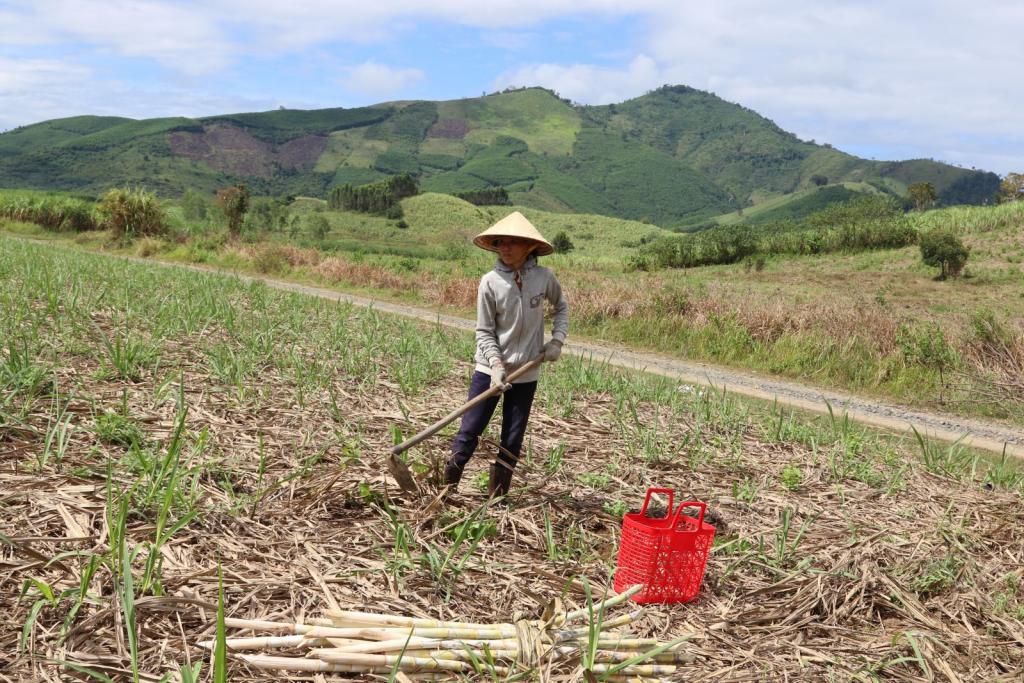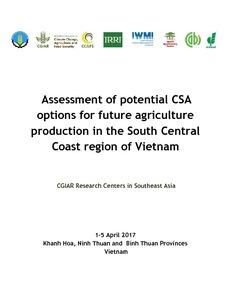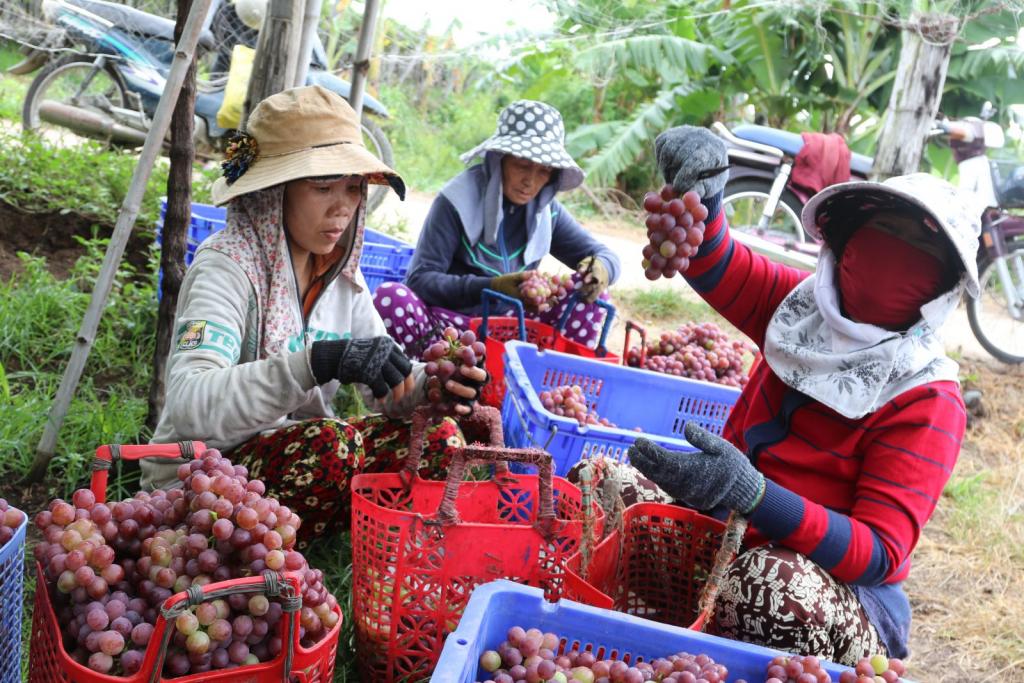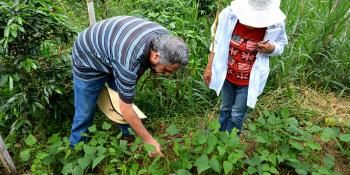Joint assessment in Vietnam to inform future climate-smart agriculture investments
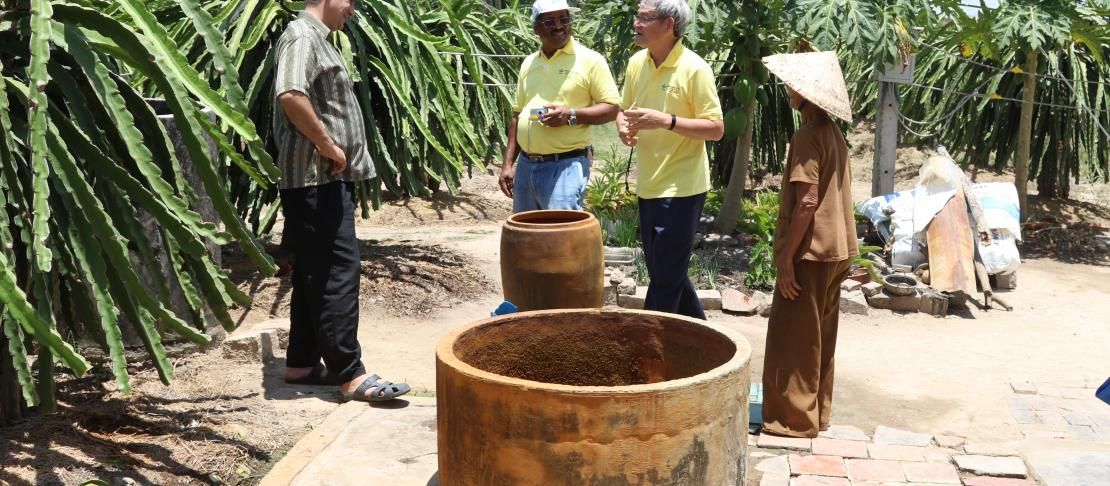
CGIAR centers and partners in Vietnam have assessed climate issues in the South Central Coast and are guiding investments in climate-smart agriculture.
Climate change is both a challenge and opportunity for communities in Southeast Asia, especially the smallholder farmers across the different countries. Sustainable development and resilience to changes in the climate need to be based on the introduction and adoption of innovative climate-smart agriculture (CSA) solutions at the appropriate scales.
In Vietnam, the CGIAR Research Program on Climate Change, Agriculture and Food Security (CCAFS) has been working with other CGIAR centers, international research and development organizations and national institutions to respond to the climate challenges in the country’s regions. Rapid assessments have been conducted in the provinces severely affected by drought and salinity intrusion in 2015 and 2016.
“The driest area in Vietnam”
The South Central Coast (SCC) in Vietnam has experienced drought each year, but impacts in the region were especially severe during the 2015-2016 dry season. The provinces of Khanh Hoa, Ninh Thuan and Binh Thuan were particularly affected. Water levels in the reservoirs in Khanh Hoa were reduced by 50%, while Binh Thuan reservoirs saw 60% reductions and Ninh Thuan 75%.
One of the sites visited during the assessment in the SCC. The region experiences drought, which is one of the main issues to be addressed. Photo: L. Sebastian (CCAFS)
This does not bode well for the communities as water for agricultural and domestic use is mainly sourced from the reservoirs. About 23,000 ha of rice fields in the three provinces were left as fallow, and 32,000 households in Ninh Thuan and Binh Thuan were affected due to the severe drought.
In light of the increasing negative impacts of climate change, identifying appropriate solutions for agricultural production of the region is an urgent requirement,” notes the joint assessment team for the SCC.
CSA options should be identified and incorporated into the short-, medium-, and long-term action plans for the region. In this regard, DCP and CCAFS had organized a rapid assessment of the SCC, to analyze the challenges and opportunities in the region, as well as provide technical recommendations to MARD.
Impacts of climate change in the SCC
The rapid joint assessment team comprised local experts from DCP, MARD and the Agricultural Science Institute for Southern Central Region of Vietnam (ASISOV), as well as researchers from the International Rice Research Institute (IRRI), World Agroforestry Centre (ICRAF), International Crops Research Institute for the Semi-Arid Tropics (ICRISAT), International Water Management Institute (IWMI) and Center for Agriculture and Biosciences International (CABI).
Between 1 and 5 April 2017, the members of the team visited select districts in Khanh Hoa, Ninh Thuan and Binh Thuan provinces. They conducted field observations, key informant interviews with provincial and district-level government officials, and interviews with farming households and local government representatives.
Many farmers in the lowlands, which is the rice production area, still use too much water for farming, poorly balance fertilizer inputs and apply substantial amounts of pesticides. Limited groundwater sources in the coastal areas result in over-extraction of ground and surface water, and salinity intrusion. On the other hand, the hilly areas experience soil erosion and flooding due to the generally low vegetation cover in the region.
Farmers also have to deal with either heavy rainfall, flooding or severe drought during the peak crop growth stages. All these factors ultimately affect crop productivity and the livelihoods of these smallholders.
Opportunities for CSA in the SCC
As discussed in the assessment report, agricultural water management should be the main focus of CSA options because the SCC region mainly experiences the effects of climate change in terms of water-related issues.
Farmers showing their crops to the assessment team. Sometimes the grape crops in SCC would crack because of unusually heavy rainfall during harvest season. Photo: L. Sebastian (CCAFS)
The assessment team suggested the following seven actions: (1) agricultural drought mapping; (2) development of a more effective water-resource infrastructure; (3) increased nutrient and water productivity through improved agronomic practices; (4) strengthening water users groups; (5) promotion of agricultural diversification with crops suitable to the drought conditions; (6) improvement of watershed and agroforestry area management; and (7) development of an integrated systems master plan for adaptation in each of the provinces and the region as a whole.
Given the region’s exposure to natural hazards, a piecemeal approach is unlikely to have the desired effect,” the team puts it in the report.
If managed correctly (and not in a piecemeal approach), the integrated solutions would not only help the agricultural sector adapt to climate change, but also to transform it towards increased productivity and sustainability.
These recommendations should be considered in formulating the policies and regulations, especially those regarding crop diversification, land use plans, irrigation policies and loans. These can also inform the development of incentives for implementing innovative technologies and practices, and investment prioritization and capacity development initiatives.
The team also recommended that the outputs of historic and ongoing collaborations among CGIAR, other international and local institutions have helped Vietnam respond to the needs of the different regions, and the country as a whole. Such partnerships are important in increasing the uptake of CSA, for the improvement of farmers’ livelihoods and resilience to climate change.
Read the assessment report:
Read more:
- Severe drought and salinity intrusion in Vietnam assessed by research centers
- Research centers respond to drought and salinity intrusion in Vietnam
- “Please share!” – Social learning leads to greater adoption of climate-smart agriculture
Amy Cruz is the junior communications specialist for the World Agroforestry Centre Philippines. She is also a communication consultant with the CCAFS SEA program.

